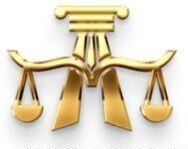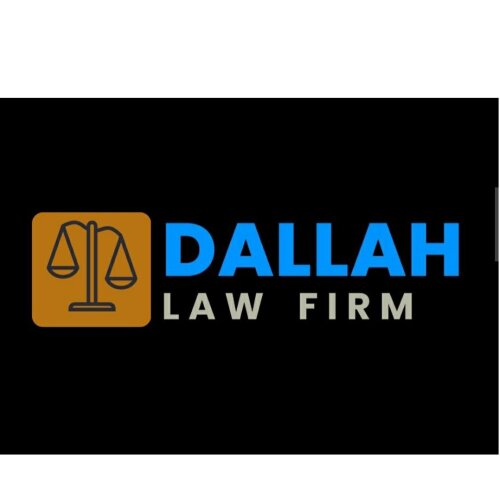Best Bail Bond Service Lawyers in Nigeria
Share your needs with us, get contacted by law firms.
Free. Takes 2 min.
Or refine your search by selecting a city:
List of the best lawyers in Nigeria
About Bail Bond Service Law in Nigeria
Bail bonds serve as a financial guarantee ensuring that an accused individual will appear in court as required, after being released from custody. In Nigeria, the system of bail bonds is enshrined within the broader criminal justice system. The Nigerian Constitution, alongside various Acts and legal procedures, outlines how bail is to be granted and managed. Bail bonds in Nigeria play a vital role in balancing the right to freedom with ensuring public safety and maintaining the integrity of the judicial process.
Why You May Need a Lawyer
The need for legal assistance in bail bond services can arise in several scenarios:
- If you or a loved one has been detained and needs to be released on bail, understanding the bail process and requirements can often require expert guidance.
- Negotiating terms for bail, especially if there's a financial bond involved, necessitates legal expertise to ensure fair terms.
- In cases where bail is initially denied, a lawyer can assist in challenging this decision through legal channels.
- Issues such as breach of bail conditions, or needing to modify terms of bail (e.g., travel permissions), require legal counsel to navigate effectively.
- Ensuring compliance with all bond conditions to avoid forfeiture and legal ramifications is essential and often requires legal oversight.
Local Laws Overview
Nigerian law provides specific guidelines for bail, influenced by both the Constitution and criminal procedure statutes. Here are some key aspects:
- The right to bail is constitutionally provided for offenses that are not punishable by death.
- Nigeria's Criminal Procedure Act and the Criminal Procedure Code, depending on the jurisdiction within the country, lay out detailed procedures for bail applications.
- Bail conditions can vary widely, with considerations including the nature of the offense, the likelihood of the accused appearing in court, and potential threats to public safety.
- In practice, the judiciary has a significant discretion over the granting or denial of bail, often leading to variability in decisions.
- Securities or sureties might be required as part of bail conditions, necessitating an understanding of how such financial elements are managed legally.
Frequently Asked Questions
What is a bail bond?
A bail bond is a written promise signed by a defendant to ensure their appearance in court when required, in exchange for release from custody before trial. It often involves a financial guarantee provided by the defendant or a bail agent.
How is bail determined in Nigeria?
Bail is determined based on factors such as the severity of the charges, the accused's criminal history, potential flight risk, and risk to public safety. The judiciary has discretion over these determinations.
Can bail be granted for all offenses?
No, bail is generally not granted for capital offenses such as murder, where the potential penalty is death, without significant legal arguments for exceptional circumstances.
What are the typical conditions of bail in Nigeria?
Conditions can include regular reporting to police, surrender of travel documents, residence restrictions, and non-interference with witnesses. Financial securities may also be required.
Can bail conditions be modified?
Yes, an application can be made to the court to modify bail conditions, typically requiring a sufficient legal basis and possibly a hearing.
What happens if bail conditions are violated?
If conditions are violated, the court may revoke bail, leading to the arrest of the accused, and possibly forfeiture of any financial guarantees provided.
Is it possible to appeal a bail refusal?
Yes, if bail is refused, an appeal can be made to a higher court for reconsideration, often requiring new evidence or arguments demonstrating a mistake in the initial decision.
Do I need a lawyer to apply for bail?
While it is possible to apply for bail without a lawyer, legal representation is highly recommended to navigate the complexities of the process effectively.
Can bail be granted at the police station?
Yes, for minor offenses, the police can grant bail at their discretion, but this typically involves less serious allegations and clear conditions.
What are sureties and how do they work?
Sureties are individuals who agree to be responsible for the defendant’s appearance in court. They must often demonstrate capability to fulfill the commitment financially or personally and may face penalties if bail conditions are breached.
Additional Resources
Individuals seeking more guidance on bail bonds in Nigeria can consult the following resources:
- The Nigerian Bar Association - for legal referrals and information about practicing lawyers in the area.
- Legal Aid Council of Nigeria - offers assistance to those unable to afford private legal services.
- National Human Rights Commission - for advice on rights related to arrest and detention.
- State-level judiciary websites - often provide procedural information and contact details for legal assistance.
Next Steps
If you or someone you know requires bail bond assistance, consider following these steps:
- Consult with a legal professional specializing in criminal law to better understand your situation and options.
- Gather any documentation relating to the arrest or charges to provide necessary information to your lawyer.
- Explore both private legal services and public legal aid if cost is a concern.
- If necessary, identify potential sureties and ensure they understand the commitment involved.
- Follow legal advice closely to ensure compliance with bail conditions and optimize the chances for a favorable outcome.
Lawzana helps you find the best lawyers and law firms in Nigeria through a curated and pre-screened list of qualified legal professionals. Our platform offers rankings and detailed profiles of attorneys and law firms, allowing you to compare based on practice areas, including Bail Bond Service, experience, and client feedback.
Each profile includes a description of the firm's areas of practice, client reviews, team members and partners, year of establishment, spoken languages, office locations, contact information, social media presence, and any published articles or resources. Most firms on our platform speak English and are experienced in both local and international legal matters.
Get a quote from top-rated law firms in Nigeria — quickly, securely, and without unnecessary hassle.
Disclaimer:
The information provided on this page is for general informational purposes only and does not constitute legal advice. While we strive to ensure the accuracy and relevance of the content, legal information may change over time, and interpretations of the law can vary. You should always consult with a qualified legal professional for advice specific to your situation.
We disclaim all liability for actions taken or not taken based on the content of this page. If you believe any information is incorrect or outdated, please contact us, and we will review and update it where appropriate.
Browse bail bond service law firms by city in Nigeria
Refine your search by selecting a city.

















